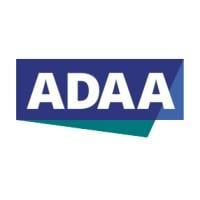All the Way with Mental Health Care and Access
All the Way with Mental Health Care and Access

“Our first concern must be to assure that the advance of medical knowledge leaves none behind.”
I wish I could say I came up with that quote, but it was my father who said it when he addressed Congress in early 1965 in a message entitled “Advancing the Nation’s Health”. Almost 60 years ago, President Lyndon B. Johnson, in that same address, quoted another president, Thomas Jefferson. In 1787, Jefferson wrote that without attention to health, there is no happiness.
Today in 2023, I would like to take the words of both presidents and add mental health to the statements. Attention to good mental health now, when one in five people in the United States suffers from a mental illness, is not just critical. With suicide being the second leading cause of death among young people and the 10th leading cause overall in the nation, addressing mental health is lifesaving.
When my father signed the Mental Health Amendments of 1967, one in 10 Americans had a mental health condition and almost half of the hospital beds in the country were filled by people with mental health diagnoses. And, as he pointed out, the cost in anguish and sorrow was far beyond counting.
You don’t have to do the math to know that the state of mental health today is in crisis. Mental health issues are all over the news and in our communities and even in our homes. More than half a century ago, my father said, “Mental health is not something which strikes some other person in some other family.” Mental health conditions strike in all of our families, and no one is immune to mental health difficulties in some shape or form.
To Whom Much is Given…
I am honored and humbled to be giving the keynote address this year at the Anxiety and Depression Association’s (ADAA) Annual Conference in Washington, DC. Some reasons for doing so are obvious but others I will explain. To whom much is given, much is expected. Great leadership requires benefitting others through giving, and there is no denying that the work mental health professionals do gives back to society.
I have been blessed to witness the usefulness and meaning of the work of mental health professionals. I have seen the challenges they face and felt the respect for the weight they carry on their shoulders in the commitment they give to their profession. The mental health field is not one where the work stays at the office or on the construction site or in the employment facility. The comprehensive dedication mental health professionals have for the people they are helping is remarkable.
I want to thank people like my good friend, ADAA Board President Dr. Charles Nemeroff, for the role he plays in the lives of people I love, and in so many others’ lives. I want to express my gratitude for people like the diverse members of ADAA and others who work tirelessly everyday to enhance mental health care. And I want to acknowledge the essential part organizations like ADAA have in providing information and resources to the public.
Addressing Mental Health Successfully
It’s hard to believe that 50 years have passed since my father’s death and mental health is still surrounded by stigma. When I was growing up, we referred to cancer as the “C” word. You couldn’t even say it, lest it become a reality. It frightened us as a society and adults would talk about it in hushed voices. I think that was the case with mental health for most of my life. While sharing and discussing mental health struggles openly has certainly improved, we must work even harder to break the stigma.
When addressing our physical health, we often do not include our mental health in the overall equation. But we should. We don’t think twice about someone with diabetes taking medication or needing multiple check ups or check ins with a provider. Why should we act differently for mental health issues?
Equity in mental healthcare should be a top priority in our society and we cannot separate our mental health from our physical health. My parents worked hard to implement various aspects of the Great Society initiative of the 1960s. They understood that healthcare should not be a privilege. And neither should mental healthcare. We cannot be a great society if we do not take on mental health as a societal issue. We cannot address America’s health successfully if we do not address mental health successfully.
Know the Stories
We all have stories. And we all have a story that affected, affects or will affect our mental health.
I suffered from an undetected vision condition for many years. Today, my problem would probably have been discovered by my school and learning accommodations might have been made. But in the 1960s, alternative learning needs were often never recognized, and accommodations were not a reality. Because of my near-point stress-induced vision problem, I was a poor student who, tried though I did, never succeeded in school. I was a hard worker. I truly cared, but academic success eluded me. That took a toll on my self-esteem and confidence. I felt inadequate and alone.
Eventually my mother found a developmental optometrist who diagnosed the near-point stress-induced vision problem that had been affecting my learning. While I had decent visual acuity, my ability to use my vision functionally was deeply compromised. Through a visual training course, my functional vision improved, and so did my grades, which in turn helped my self-confidence, my sense of self achievement and self-worth.
It’s so important to share, read and know the stories behind those who suffer from mental health issues. As a society, we cannot allow them to suffer in silence. Organizations like ADAA do an amazing job of making sure they know they are not alone and that there is help. ADAA’s work in getting stories out there and giving people the opportunity to tell their stories – their struggles, their challenges, their hopes, their dreams and their triumphs – is crucial. And that helps us ensure that no one is left behind on the road to better mental health.
The healthier we are mentally, the healthier and more successful we can be in every other way. It begins with knowing the stories of those who suffer, sharing those stories, and understanding them all the way.













